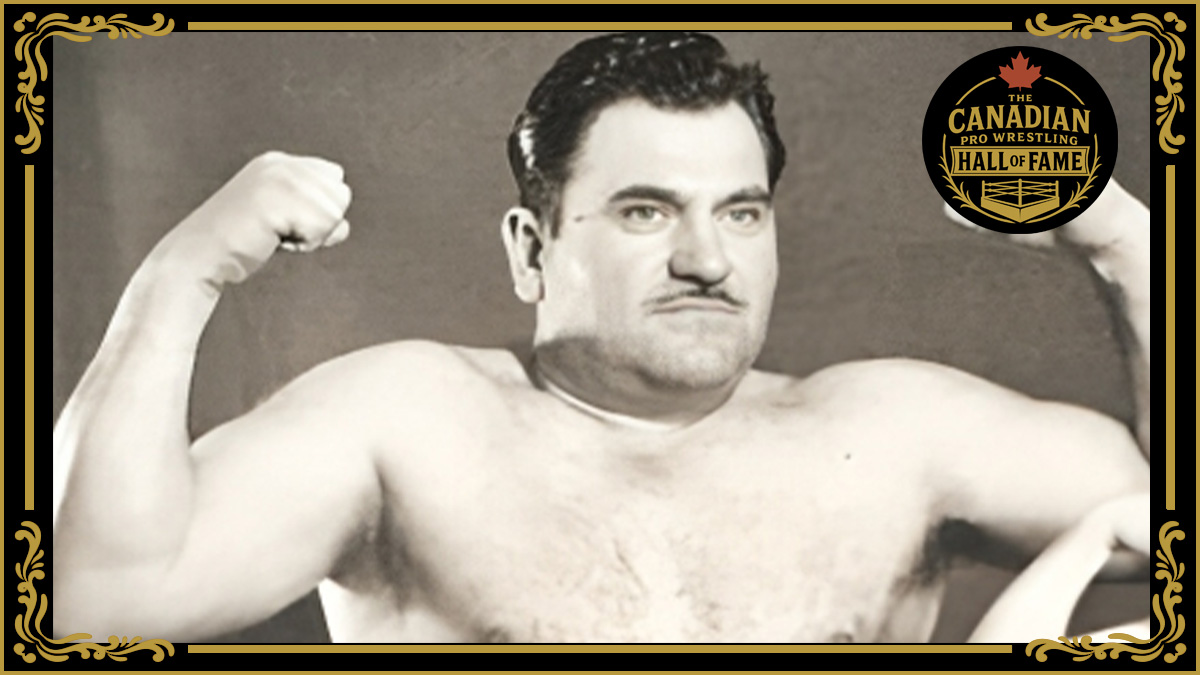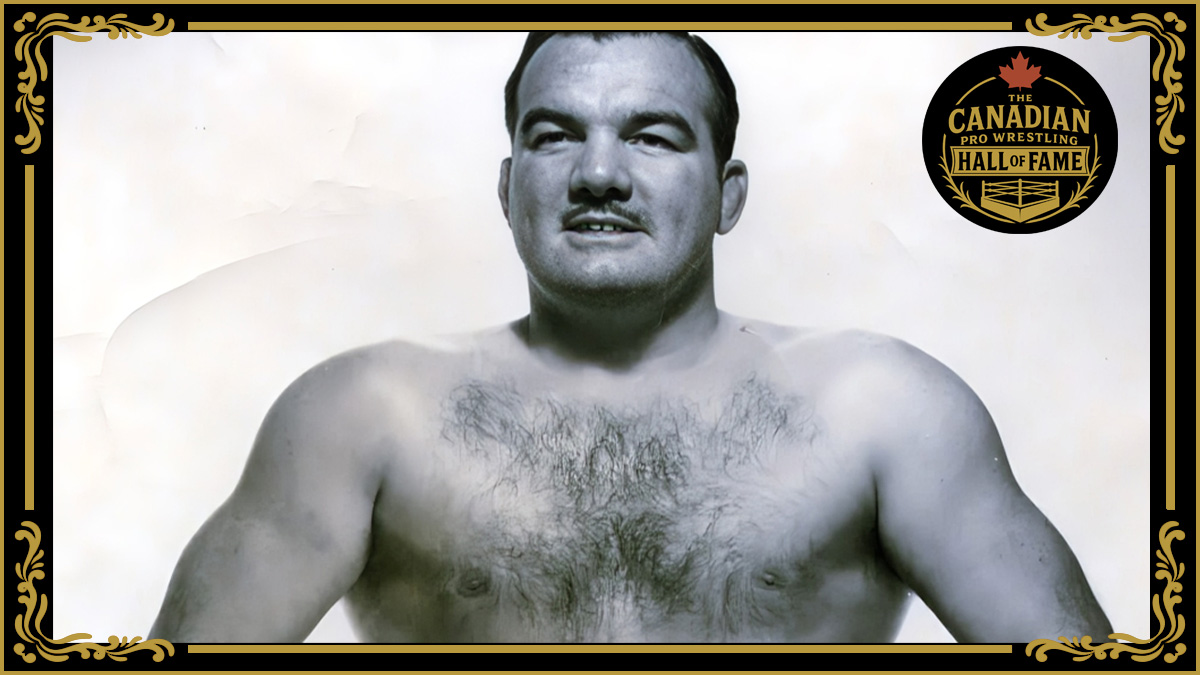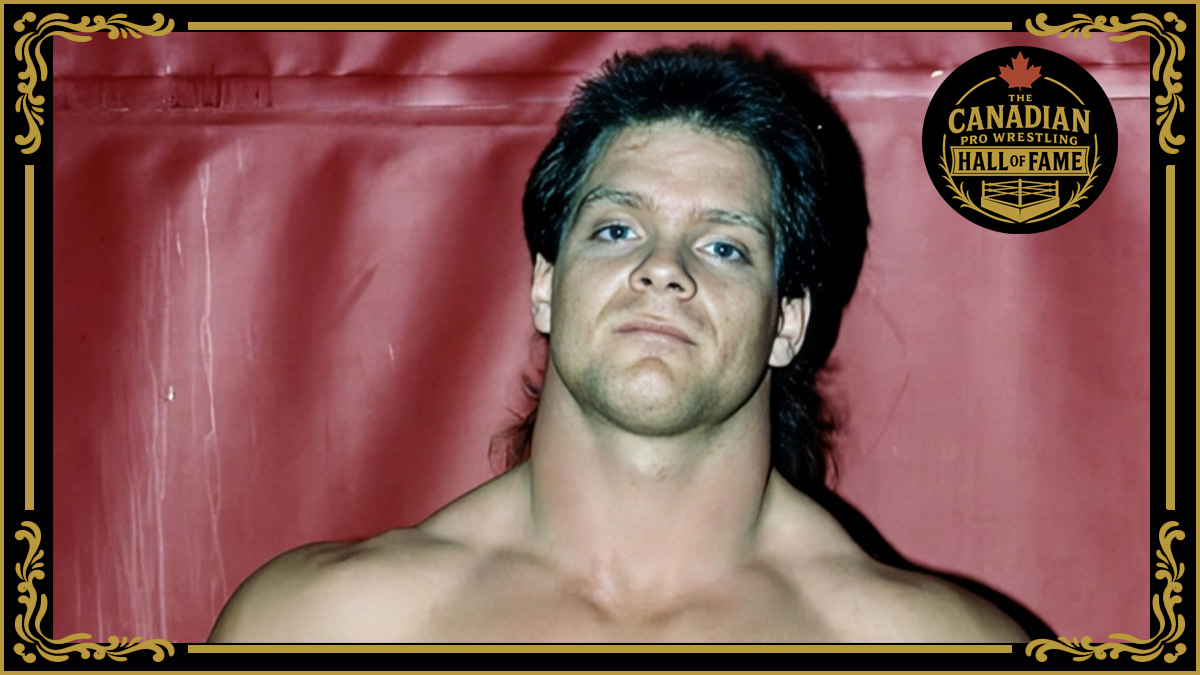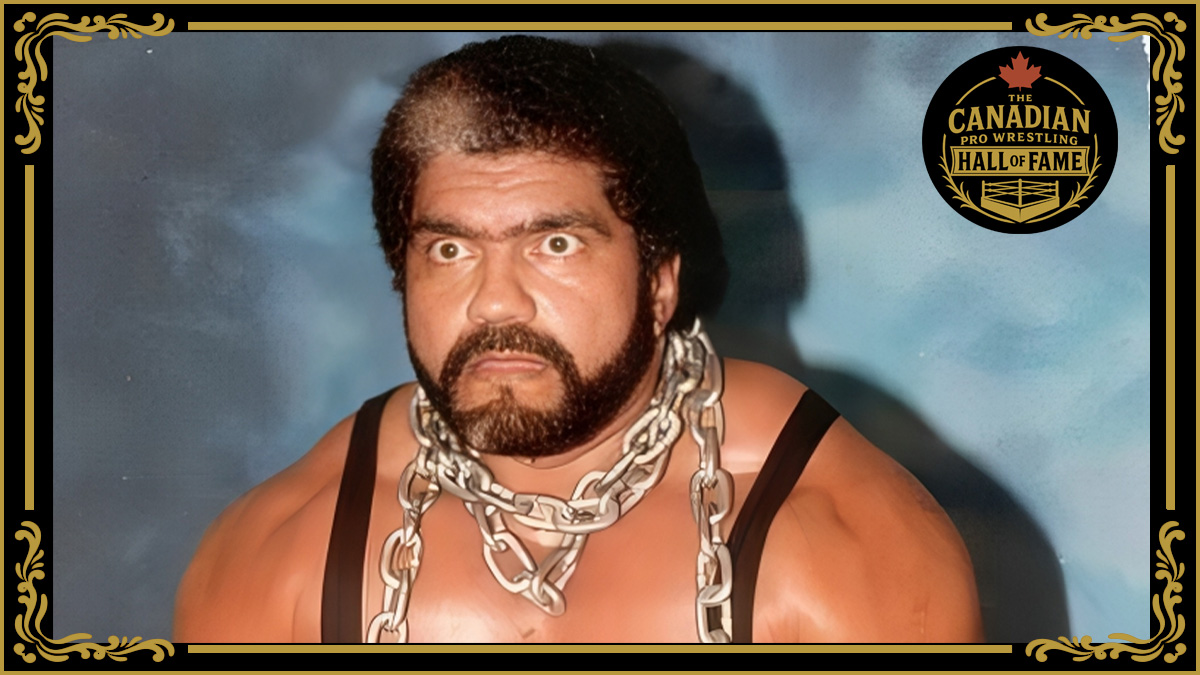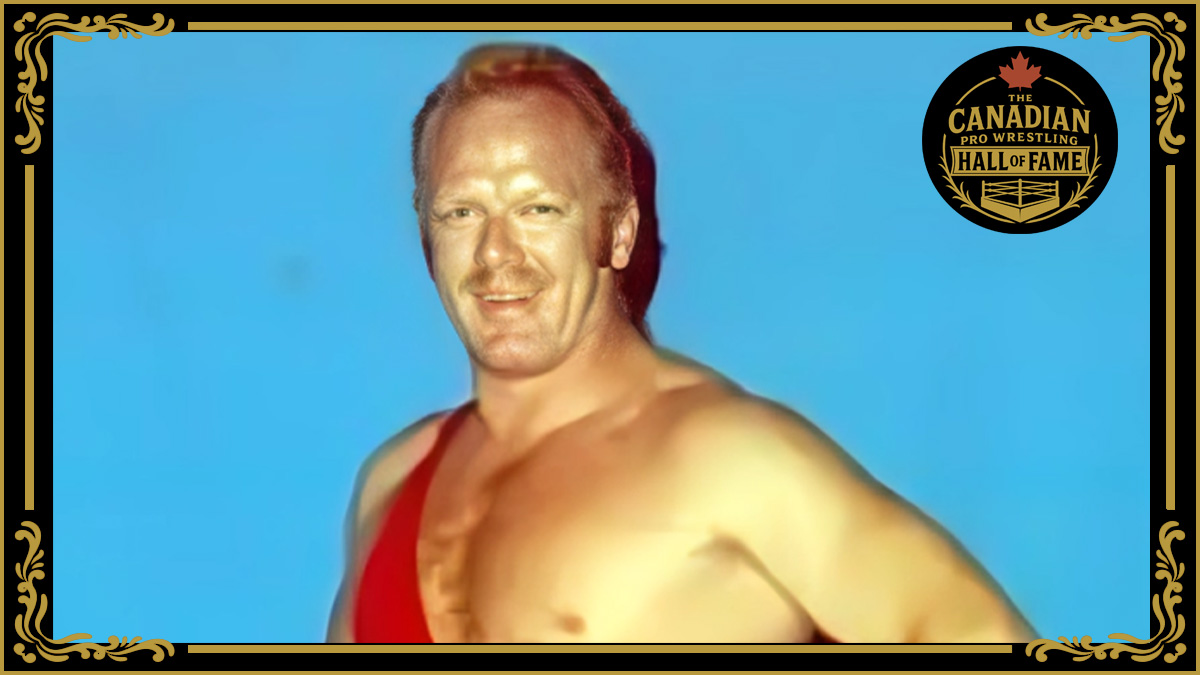The conversation was easy enough – I was asked by Andy Anderson and TJ Little to talk about Dave Ruhl the next time I was a guest on the Wrestling POV podcast.
Then the realization hits, that Ruhl was a lot more than just a “pig farmer from Hanna.”
The years of research start to coalesce, but don’t fully take shape until after the podcast is over.
Ruhl, one of the key components of Stampede Wrestling through the years, and a trusted lieutenant to Stu Hart before his sons were truly old enough to have a serious hand in the family business, really died on the roadside in 1974, when he fell and cracked his head, even if he lived another 16 years.
So that is as a good of a place to start as any.
It was late in the 1974, the 53-year-old Ruhl at the wheel, driving three other wrestlers from Medicine Hat to Saskatoon for a show. Only 450 kilometers, so a short five-hour trip in the massive western Canadian promotion.
In the passenger seat was the perennial hero “Cowboy” Dan Kroffat. The backseat had Carlos Belafonte, a diminutive babyface in the territory, full of fire, and destined to be a powerful promoter years later, as Carlos Colon in Puerto Rico, and his frequent tag team partner, Gino Caruso.
Some of the story is told in Heath McCoy’s book on Stampede, Pain and Passion: The History of Stampede Wrestling:
As Kroffat remembers it, it was a cold, frosty night and Ruhl was puffing on a cigar. Colon was nauseated by the oppressive smoke that filled the car. He rolled down the window to get fresh air.
“Close the window, it’s cold out,” Ruhl growled.
“Then put the cigar out,” Colon snapped. “I’ve got a headache.”
“It’s my car, and I’ll do whatever the hell I want.”
The exchange got increasingly ugly, insults and challenges being spat back and forth. Finally, Ruhl pulled the car over to the side of the road to settle the score. The two squared of, dancing around one another like boxers, each man waiting for an opening.
What happened next is open to interpretation. Who hit who, how long they fought, and why they fought, depends on who is talking.
In an RF Video shoot from 2012, Colon first praised Ruhl – who was the booker for Stampede at the time, and still wrestling – for his skill at driving under winter conditions. “I was always lucky to ride with the booker, the late Dave Ruhl, may God rest his soul, and he was one of the greatest drivers I’ve ever seen,” said Colon.
He is asked, “What exactly happened on that car ride?”
“We had had a few beers, we got into an argument, got into a fight, and he fell and banged his head. That was the end of his career,” said Colon. “When I think about that, I feel bad … I never saw him again after that, but I felt bad. I wanted to see him to apologize, but I never had that opportunity.”
In Pain and Passion, Kroffat said that Ruhl fell on a patch of ice and fell to the ground, smacking his head. “It clunked like a coconut,” Kroffat said. “It knocked him right out.”
The babyfaces and the heels traveled separately, but the wrestlers were often in a caravan of sorts, nearby on the road. This was one of those circumstances, and another car with wrestlers arrived on the scene, and took Caruso and Colon. Kroffat was left to get Ruhl in the Cadillac’s backseat and take him to Saskatoon.
“I could hear him groaning in the back, and I wanted to take him to the hospital,” Kroffat said in Pain and Passion. “By the time we got to Saskatoon, at the Executive Hotel, he was coherent but groggy.” They did not go to the hospital.
When Ruhl did not show up at the Saskatoon Arena the next day, he was found in his hotel room, unconscious, blood on his pillow. Finally taken to the hospital, Ruhl was diagnosed with a concussion. Though he tried to wrestle a couple of times, everything was off, and his career was finished. Ruhl’s long story in wrestling was over. He had been the Canadian champion in the territory, a belt with a deep lineage that included Jack Taylor, Earl McCready, Al Mills, Ski Hi Lee, George Gordienko and Johnny Valentine; the title was abandoned.
Ruhl was born on August 12, 1920, in Watts, Alberta, to Mary and Henry Ruhl. He had two sisters, Pauline and Lydia, and two brothers, Daniel and Henry. It was with Henry that he was most associated, as they farmed in the Scapa area until 1974, Ruhl’s accident forcing him to slow down.
In Pain and Passion, his son, Glenn Ruhl, noted that his father did a trip to Japan post-accident to wrestle, but didn’t finish because of a kidney stone. “It was ironic because when the accident happened… he wasn’t planning on wrestling that much longer,” Glenn Ruhl said in the book. “But like most performers, he wanted to quit on his own terms. When he was forced to quit, that was problematic … It gave him a lot of depression and witnessing that was really tough on my mother and me.”
Apparently Ruhl started wrestling in 1946, though records are scarce. He can be found by 1951 as a referee in Montana. A November 1953 article in the Billings Gazette billed him as “Dave Ruhl, former professional football and hockey star from Calgary, Alberta.” (He can’t be found in either sport’s database.) For a time, he worked under a mask in Texas and Arizona as The Hooded Wasp.
Here’s a fun match description from The Post-Register in Idaho Falls, Idaho, describing the action on Thanksgiving Night in 1955 at the Idaho Falls Armory, the second bout of the evening:
In the other main event, Chief War Cloud and Ruhl carried on one of the most colorful matches seen here.
War Cloud won the first fall with a bolo chop, two body slams and a body press 16 minutes after the action started.
Ruhl came back for the second one five minutes later with a series of back breakers and a body press.
War Cloud got the decision when he applied an Indian death lock on the Canadian. But he didn’t do it until after Ruhl nearly had him pinned. That was when Ruhl started his main hair pulling campaign, but referee Skip Quire’s counting against him prevented him from possible fall and victory.
Ruhl pinned the Indian for the count, but Quire ruled that the count was on against Ruhl at the time. It was then — within a second — that War Cloud pinned his adversary.
At one instance in the battle, War Cloud found a towel, wrapped it around Ruhl’s neck and used it as a handle to deliver his “goods” from (the) corner of the ring and back again.
Ruhl wore an arm bandage during the first part of the bout and took advantage of it to rub War Cloud’s eyes. War Cloud then attacked, forced the elastic bandage from the Canadian’s arm and rubbed it in his eyes. He followed this action up by a traditional war dance, while Ruhl was recovering.
The 5-foot-10, 240-pound Ruhl isn’t seen as much on cards in the early 1960s, but by the latter part of the decade, he’s back on top, promoted heavily as the “pig farmer from Hanna,” and he captured the hearts of fans.
It helped that he been friends with Hart for decades, as Hart started Wildcat Wrestling in 1948, the precursor to Stampede Wrestling. In a 1997 interview at the Hart House, Hart shared his memory of Ruhl with this writer. “Dave was a very solid wrestler. He wasn’t as spectacular as some of the boys we had,” Hart said. “They believed in him. He had a full-nelson that was pretty hard, not too many people broke it on him. Once he got it, he did a pretty good job on you.”
As Kroffat, who also appeared to discuss Ruhl on the Wrestling POV podcast, further observed, there’s a reason Ruhl was over – he was pushed, since he was writing much of the script.
“Was he a talented worker? I’m going to be honest and say I don’t think so. But because he had the book, he had the influence, he was able to put himself over with the support of Stu,” said Kroffat. “A lot of charisma quite often can be based on how much control you have over your own career. And when you go in the ring, and especially with the fan following, and you’re putting full-nelsons on guys night after night, putting them away in two or three minutes, you become pretty believable in the eyes and minds of the fans, even though he’s not physically imposing.”
In the autobiography, Superstar Billy Graham: Tangled Ropes, Ruhl does not come off well: “Besides being a sloppy drunk, Dave Ruhl wasn’t my physical peer. I’d bench-pressed more than 600 pounds. If he lifted 200, I would have been shocked.”
Ruhl had some great villains to work against, like Archie “The Stomper” Gouldie, Abdullah the Butcher, and perhaps none better than Sweet Daddy Siki.
In a January 2001 Calgary Sun column, Bret Hart recalled Siki versus Ruhl:
Does anybody remember Sweet Daddy’s colourful interviews when he put Ruhl down for being a pig farmer from Hanna?
Sweet Daddy had an awesome physique doing the flamboyant Gorgeous George gimmick—complete with gaudy-white, dark-rimmed sunglasses, a long cigarette holder and two mirrors to make sure every bleached, white hair was in place. And boy, could he talk!
Ruhl sort of looked like Colonel Sanders with black hair but behind the scenes he did a great job as a well-organized booker for my dad’s territory.
He’d come out looking anything like a hillbilly pig farmer, wearing polished cowboy boots and a fine black suit and tie.
Sweet Daddy jumped him and ended up tying a chicken around his neck one week – and a pig’s head the next. Once he got Dave’s dander up, the match was signed and they sold out the Corral for five weeks in a row.
I can remember them wrestling for a solid hour. You could smell the sweat and the cigarette smoke in the air and everyone was left hanging right to the last second. Sweet Daddy gave Ruhl three or four drop kicks in the dying seconds and just when Siki thought he had him right where he wanted him, Dave slapped that full nelson on and the house exploded.
Siki himself chuckled at the memories of working with Ruhl. “He was older than me. He was a pretty nice guy, though,” said the Sweet Man from his Toronto home in early 2021. “They liked him. I had a good run out there, and I must say.”
Shopping was key, added Siki. “I used to go to the supermarket, because I called him a pig farmer, and I would buy a pig’s tail. When I’d get him on the mat, I’d have a pin stuck to the pig tail, and I would fasten the pin on his trunks when I had him down. He’d walk around and didn’t know. People were laughing like hell.”
Kroffat recalled that there was a difference between his generation and Ruhl’s, and that Ruhl didn’t see the business the same way. “Guys would get twisted. There were some guys, Dave Ruhl and guys like that, who would just go ballistic if you were to be seen with a heel anywhere, or if you suggested to people not to take it serious.”
The injuries that Ruhl suffered, including the career-ending concussion, made life post-wrestling a struggle, said Glenn Ruhl in Pain and Passion. “There’s no pension plan in wrestling … There’s nothing to fall back on…. It was one thing for my dad to sell the farm on own terms, but another thing to do it so [he and my mom] could live. It allowed them to have some quality of life. It would have been bad if he just had the wrestling.”
Kroffat saw Ruhl here and there in the ensuing years, before Ruhl died in 1988. “I saw him numerous times after the accident. He was living in Calgary. And where I lived, two houses away was his sister’s house was, and he would cut their lawn all the time. And he was not the same person — you could tell that (the) concussion it really had an effect on him. He was almost in a daze all the time. I spoke with him several times and realized that I was not talking to the same person after that incident.”
Ruhl died on December 21, 1988; he lived in Medicine Hat since 1981. His life was celebrated at Pattison Memorial Funeral Home Chapel in Medicine Hat. A year later, the family paid tribute to him in the Calgary Herald:
RUHL – In loving memory of Dave Ruhl, who passed away, December 22, 1988.
There was no time to say goodbye,
The day you went away.
You left so suddenly,
One year ago today.
We think of you in silence,
We often speak your name,
All we have left is your smile,
On the picture in a frame.
– Ever remembered by your wife Martha, children,
